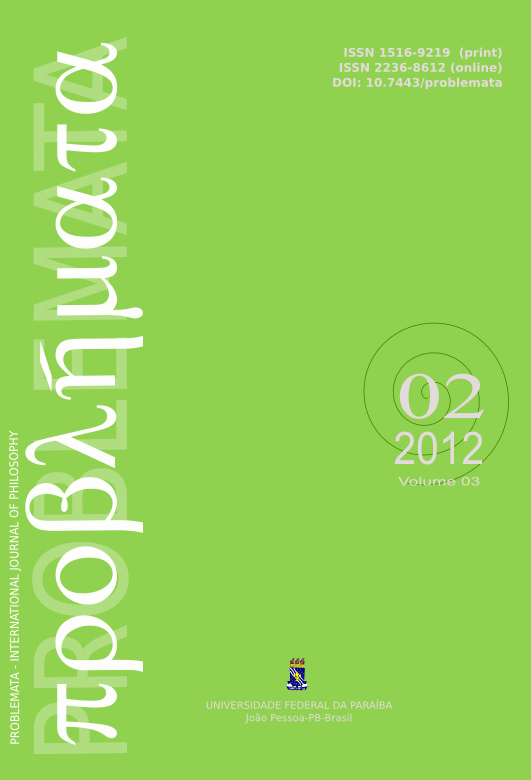HABERMAS, PUBLIC SPHERE, RATIONALIZATION, LEARNING <a href="http://dx.doi.org/10.7443/problemata.v3i2.14952"><i> <b>[doi: 10.7443/problemata.v3i2.14952]</b></i></a>
DOI:
https://doi.org/10.7443/problemata.v3i2.14952Abstract
The article emphasizes two concepts equally central to the Habermas’ thought beyond the triad public sphere, discourse, reason: the concepts of learning and rationalization. Asks whether the public sphere defined as “space of communicative tract and rational between people” may be a space of rationalization, i.e., a space for collective learning. It seems that the public sphere as an ideal model of rational discussion becomes too abstract and lacking institutional enrollment. Without it, the public sphere is only the idealized form of a communicative logic supported on the constraints of rational discussion and on cognitive competences presupposed of individuals. The question here is whether the public sphere as conceived by Habermas respond or can respond to demands for rationalization of public life, that is, provide the conditions for collective learning necessary to changes that requires a modernity understood in the broad sense of an unfinished project. It seems that Habermas’s theory of law, in Faktizität und Geltung, offers one and perhaps the only viable alternative to the idea of an effective public sphere. That’s because learning of democracy needs an institutionalization of discursive logic - whether in the field of truth claims or pretensions to justice.
Downloads
Downloads
Published
Issue
Section
License
Authors who publish with this journal agree to the following terms:
- Authors retain copyright and grant the journal right of first publication with the work simultaneously licensed under a Creative Commons Attribution License that allows others to share the work with an acknowledgement of the work's authorship and initial publication in this journal.
- Authors are able to enter into separate, additional contractual arrangements for the non-exclusive distribution of the journal's published version of the work (e.g., post it to an institutional repository or publish it in a book), with an acknowledgement of its initial publication in this journal.
-
- Authors are permitted and encouraged to post their work online (e.g., in institutional repositories or on their website) prior to and during the submission process, as it can lead to productive exchanges, as well as earlier and greater citation of published work (See The Effect of Open Access).





